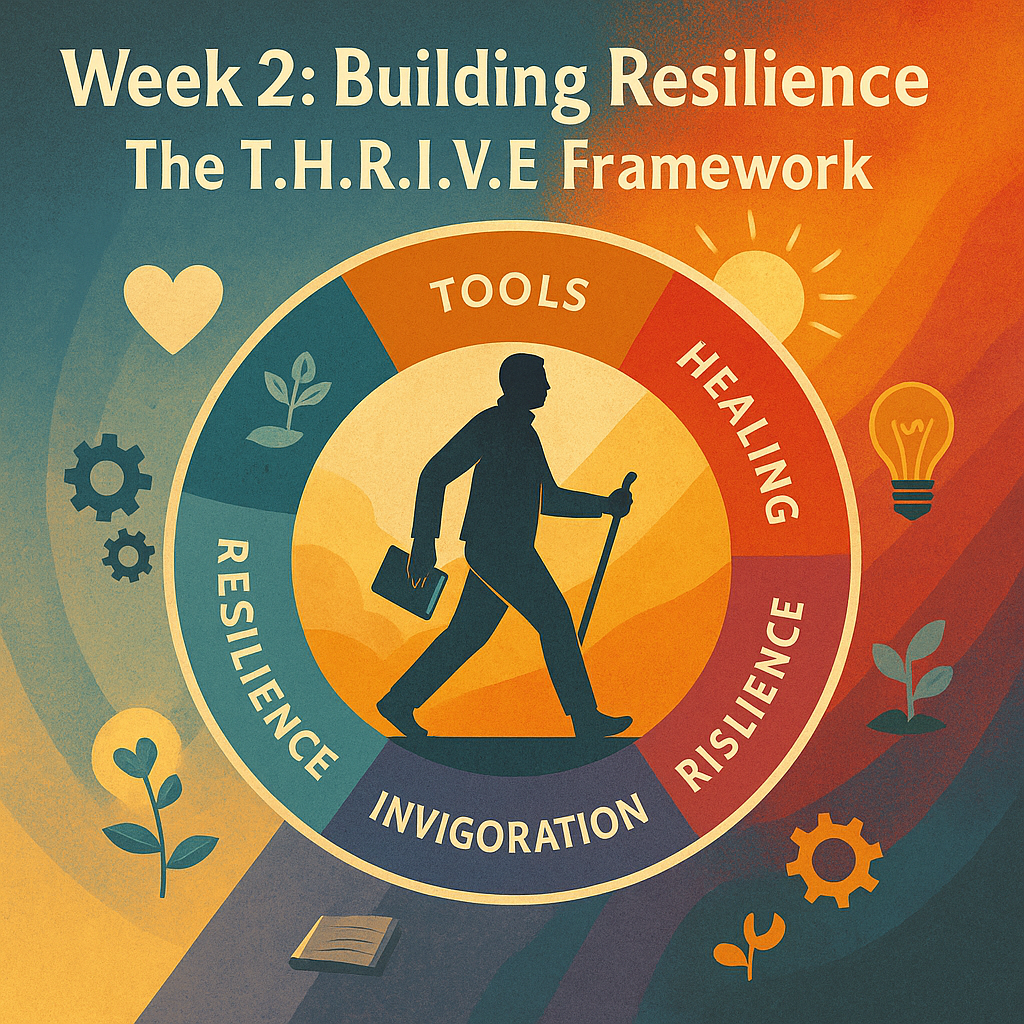THRIVE to protect mental well-being of healthcare professionals
Compassion-driven leadership could ease burnout, moral injury, and the silent weight of unspoken trauma among medical practitioners.

In South Africa’s KwaZulu-Natal province, a young intern doctor collapsed and died while on duty at Prince Mshiyeni Memorial Hospital. His death was not the result of incompetence or negligence. It was the product of a system — and a leadership culture — that ignored his limits. A culture that too often rewards endurance while quietly punishing vulnerability.
This was not an isolated tragedy. Across Africa, and indeed across the world, healthcare workers are being worn down by burnout, moral injury, and the silent weight of unspoken trauma. Each collapse, each resignation, each preventable death forces us to confront a painful question: How many more must be “accidentally disabled” before leadership acts?
Leadership at a crossroad
For decades, healthcare leadership has rightly prioritised patient safety through oversight, compliance, and performance management. Yet behavioural science and social psychology remind us of a truth we often overlook: when people feel unsupported, unsafe, or devalued, their performance inevitably declines.
The paradox is clear. In seeking to protect patients through control, leaders often erode the very workforce they depend on. The result is a profession where many feel managed but not mentored; monitored, but not meaningfully supported.
Organisational psychology calls this a culture of fear. When authority leans too heavily on correction and punishment, healthcare workers conceal mistakes, avoid asking for help, and internalise failure. The cycle is corrosive: errors multiply, morale collapses, and the public loses trust.
But there is another path.
From command to compassion: the THRIVE model
Through the Accidentally Disabled project at the African Institute of Mind, we studied how disability can emerge not only from physical injury, but from exhaustion, trauma, and systemic neglect. From that research, we developed the THRIVE Model — a wellness framework for leaders, institutions, and healthcare systems.

It is a call to shift from command-and-control to compassion-driven leadership.
T – Tools for resilience and reflection: Equip staff with structured debriefings, stress management resources, and confidential psychological support.
H – Healthcare culture shift: Move beyond “blame and shame” toward prevention and shared learning. Reward transparency and open dialogue after errors.
R – Restorative leadership: Replace punitive defaults with restorative practices that acknowledge systemic failures and rebuild trust.
I – Innovation in mental health support: Use technology to track clinician well-being, monitor workloads, and flag burnout early. Imagine dashboards where staff well-being is as visible as infection control rates.
V – Vitality metrics: Build patient safety audits that include staff wellness indicators — rest hours, access to care, job satisfaction.
E – Empowerment through compassionate leadership: Lead with empathy. Evidence shows teams guided by compassion are more resilient, safer, and more committed.
This model is not theory. It is evidence-informed, practical, and urgently needed.
The psychology of flourishing
Social science underscores the link between worker flourishing and system resilience. Research in positive psychology shows that when people experience psychological safety — the freedom to speak without fear of retaliation — they are more innovative, engaged, and effective.
In healthcare, that safety saves lives. A nurse who feels supported is more likely to report a near-miss. A doctor who feels valued is less likely to hide fatigue. A leader who fosters dignity instead of fear builds a system that is not only safer, but sustainable.
The tragedy at Prince Mshiyeni shows what happens when this connection is ignored. Burnout and trauma, left untreated, silently disable healthcare workers until the system itself begins to fail.
An outlet for the overburdened
One of the simplest — and most overlooked — leadership interventions is reflection. In my forthcoming book, Accidentally Disabled, I introduce journal prompts for healthcare professionals: small but powerful practices to decompress, breathe, and regain perspective.
For clinicians who spend their lives caring for others, journaling provides a rare space to acknowledge pain, process experiences, and reclaim humanity. Leaders can normalise such practices by weaving them into training, wellness programs, and daily routines.
Sometimes transformation begins not with sweeping reforms, but with something as small as a pause.
A call for balanced leadership
The urgent question remains: Can healthcare leadership embody both kindness and firmness?
The answer lies in balance. Patient safety must never be compromised — but neither should the humanity of those who deliver care. Firmness in principle must be matched by compassion in practice.
Behavioural science teaches us that sustainable systems emerge not from fear, but from trust. Social psychology teaches us that dignity is as vital as discipline. Mental health research reminds us that flourishing professionals create flourishing patients.
The path forward is clear: leaders must care not only for patients, but for those who carry the system on their shoulders.
Closing thought
The death of the young intern at Prince Mshiyeni must not remain just another tragic footnote. It should be the spark of a new leadership ethos — one where healthcare workers are not casualties of the system, but catalysts for its renewal.
Let us choose courage. Let us choose compassion. Let us choose to THRIVE.
Africa calling! Meet innovative strategists, network with like-minded business leaders, and learn more about the latest healthcare trends and innovations at WHX Cape Town. Sign up now to secure your spot today!

WHX Cape Town
Oct 13, 2026 TO Oct 15, 2026
|Cape Town, South Africa
Join us at WHX Cape Town—where a trusted legacy meets the future of healthcare. WHX Cape Town brings together local talent and global pioneers to explore breakthrough innovations, build transformative partnerships, and shape the future of care from a region rich in ideas and opportunity.
